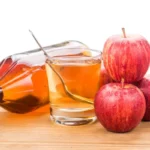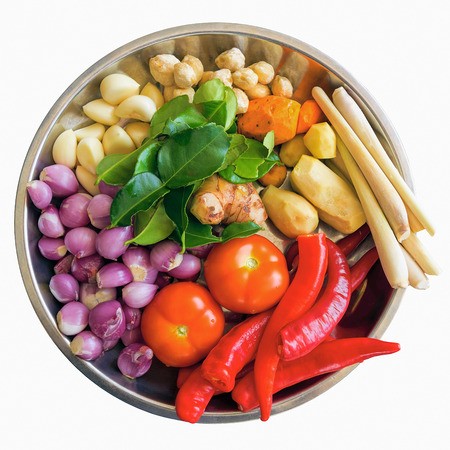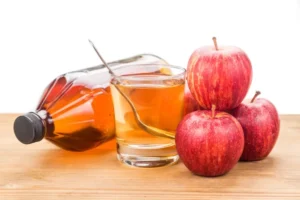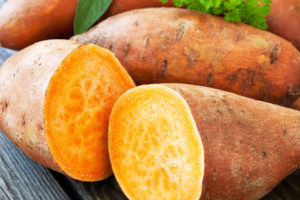As Americans have been devastated by COVID-19, keeping our immune system healthy is of vital concern. The network of natural defenses protects the body from viruses, harmful pathogens, toxins and other bacteria causing infections. One of the best ways to maintain a strong immune system is through a nutrition-rich diet. Stock up on the following foods and appreciate their immune boosting qualities.
CITRUS FRUITS
Varieties of citrus fruits such as oranges, grapefruits, lemons, and limes are an excellent source of Vitamin C—an essential immune system-boosting nutrient. Not only are these colorful fruits a flavorful treat, they offer a number of health benefits. Packed with potassium, citrus fruits are also a good source of fiber. They have a low glycemic index and contain flavonoids, which promotes heart health. Citrus fruits are water-rich and contain little to no fat, calories or sodium and can shorten the duration of colds. Citrus fruits are good for the skin too.
GARLIC
Enriched with the sulfur-containing compound, Allicin, the undeniable scent of garlic not only heightens the flavor of food, it stimulates the immune system as well. This bulb has antibacterial and antifungal properties as well as medicinal value. Contained within the bulb are vitamins B, C, D, E, and K, calcium, magnesium, potassium, iron, sodium, zinc, iodine, and selenium which all have fantastic health benefits.
SPINACH
The dark, leafy green vegetable known as spinach is a great source of vitamin A, C, and K, magnesium, and manganese. Spinach is full of iron-rich antioxidants which work to strengthen the immune system along with having a range of other health benefits. This popular superfood can also potentially lower cholesterol levels, reduce the risk of heart disease, lower blood sugar levels, improve eye health, build muscle, and reduce the risk of cancer.
MUSHROOMS
Edible mushrooms are considered a nutrient-rich food that supports the immune system. Contained within mushrooms is the antioxidant known as selenium, Vitamin B and various degrees of fiber and proteins that give the body energy. Low in calories, this easily digestible fungus also contains iron, vitamins A, B, C, and D, potassium, magnesium, and sodium, which have been shown to protect the body against cancer.
TEA
Several studies have shown that tea—which is rich in herbs and other powerful ingredients— can boost and support your immune system protecting you from colds, flus, and viruses. Other teas that strengthen immunity include black tea, lemon grass, herbal tea, Echinacea, white tea, Elderberry, oolong, among others. Tea has been known to have other health benefits such as fighting inflammation, warding off cancer and heart disease.
Next to water, green tea is the healthiest beverage on the planet. Much of its benefits can be attributed to its stock of polyphenols called catechins, an antioxidant found in plants, which provides the immune-boosting impact.
RED BELL PEPPERS
More than its rich, beautiful color, red bell peppers are a nutrient-rich source of minerals and vitamins including: B6, C, E, K1, folate and potassium. Their carotenoid content places them on the top 15 list of foods containing vitamin A. It is first in the vegetable class for vitamin C and is known for its numerous antioxidant phytonutrients. Red bell peppers are also a healthy source of fiber and iron and are low in calories. Eat them fresh and combine them with several other nutritious foods.
TUMERIC
Originating from the turmeric plant, the popular spice is a super food with a history of use in traditional medicine. Known for its use in Indian curries; turmeric has anti-inflammatory properties derived from the curcumin component which accounts for its orange-yellow color. According to studies, the medicinal properties can potentially boost the immune system and has reported beneficial effects in several other diseases.
GINGER
Originating in South-East Asia, ginger is a popular superfood with a history of use in traditional herbal medicine. Known for its anti-inflammatory and antioxidant impact, ginger aids in treating a number of illnesses including sore throats, chronic pain, arthritis, infection, and constipation. Ginger’s medicinal properties are health-promoting and used in many countries to improve the immune system.
BROCOLLI
The cruciferous vegetable family—which broccoli is a member of, along with cauliflower and brussel sprouts—are antioxidant and vitamin-rich vegetables which help to support the immune system. This nutrient-packed vegetable contains high amounts of vitamin C and K along with beta-carotene, fiber, magnesium, potassium, zinc, and iron.
CHICKEN SOUP
Studies have shown that a hot bowl of soup does wonders in boosting the immune system during cold and flu seasons. Not only are the contents deliciously comforting, it may have anti-inflammatory properties which may ease symptoms. The ingredients found in Chicken soup includes a number of nutritious vegetables such as onions, garlic, carrots, potatoes, celery that provide vitamins and minerals and also helps to clear nasal congestion. Moreover, high amounts of Vitamin B6 can be found in chicken and turkey.
NUTS (Almonds)
Replace that urge to binge on junk food with almonds. This healthy snack contains iron and protein which is required to boost the immune system. Almonds are an excellent source of vitamin E which acts as an antioxidant and supports a healthy immune system. Eating almonds can help fight off symptoms of colds and flus as well as viral infections.
SUNFLOWER SEEDS
Snacking on sunflower seeds can be beneficial to the body. Like almonds, sunflower seeds are a good source of vitamin E and contain antioxidant properties which have been known to help the immune system control cell damage. It is also useful for hair growth, healthy skin and nails. Sunflower seeds also contain fiber, protein and selenium which work in the fight against certain types of cancer.
HEALTHY TIPS
The key to preventing disease and infection is keeping your immune system healthy. Adding nutritious foods to your daily diet is imperative particularly during the cold and flu season. In addition to the foods listed, look into matcha, goji berries, chia seeds, blueberries, watermelon, poultry and salmon. Of course, other lifestyle choices—such as regular exercise, adequate sleep, not smoking and drinking alcohol in moderation—are crucial to maintaining overall good health.













